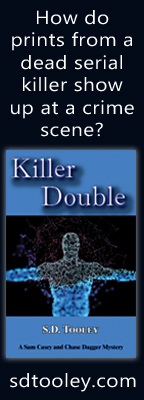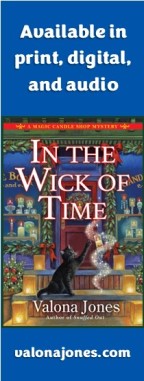by Tom Sims
Pain is a messenger and so is P.A.I.N.
Pain is a common denominator in the human equation. Everyone suffers it to one extent or another. It is part of our built in warning system that something is wrong in our bodies. Without pain, we are oblivious to information we need to make healthy choices.
No one enjoys pain and we have a natural inclination to avoid it, suppress it, or eliminate it. So, we do what we can and that sometimes means very unhealthy responses to pain that lead to addiction and destruction of the very warning systems that we need to make the choices we must make to be healthy, growing, and functioning human beings.
Flindt Andersen knows that from experience. Flindt was addicted to prescription drugs for twenty years and has been clean for ten years. He founded P.A.I.N. (Prescription Abusers In Need) to tell his story and to help young people avoid living the same story.
Prescription drug abuse is the number one arena of addiction among high school students today. Because of that, last year, Anderson spoke to 85,000 students. He is driven to get the word out about the problem of abuse and the fact that there is hope. P.A.I.N. works in high schools, with students, with parents, and with educators to provide information and resources according to Cari Salwasser, a spokesperson for the organization.
Cari says, “The problem of prescription drug abuse in the schools is getting larger, not smaller and it is our goal to reach as many Jr. High and High school students and their parents as we possibly can … We hold 2 meetings for addicts every week and one for families with addicted children, as well as give referrals to rehabilitation facilities for addicts who need help to get and stay clean.”
Flindt Andersen speaks with passion, conviction, and out of his own personal struggle when he says: “Our mission is to inform, schools, churches and any other groups that we are in the middle of an epidemic with narcotic prescription drugs such as Oxycontin, Vicodin, etc., and to give teenagers a firsthand look at the addiction process and the damage it can, and will, cause. Through my speaking engagements, I will tell them the brutal truth of my 20-year addiction to opiates.
“How it affected not only myself, but my family, my friends and my business. To tell them how it starts, where it leads, and how it affects everything from their faith to future careers to future relationships and their health. To tell them of the 27 surgeries I’ve had and how drug addiction has had a huge role in my medical condition. Then to tell about the miracle of recovery and what that’s all about. Not to sugarcoat it, but tell the hard facts. And finally not to just tell them, but show them, through my own recovery, and the promise that life can be good again without the use of narcotics!”
P.A.I.N.’s website is http://GotPainusa.com. While not a comprehensive guide to addiction help, it contains a lot of helpful information pertaining to prescription drug abuse. On the P.A.I.N. website are some startling facts including reports that prescription drugs kill 300% more Americans than illegal drugs, that 60% of teens will experiment with narcotic painkillers before age 15, and that every day 2,500 teens use prescription narcotic painkillers for the 1st time.
Reuters reported in February of 2010, that in the United States, abuse of prescription drugs is now the second most important drug abuse issue after cannabis, with 6.2 million people hooked on them in 2008.
Oxycontin and Vicodin are the drugs of choice among teens. They are available and they “do the job.” They can get them from their home medicine cabinets or their friends. They are extremely addictive and their abuse can destroy lives.
When I had surgery, I was prescribed Vicodin for pain. I filled the prescription and took one-half of a pill. That meant that I had an entire bottle of a dangerous painkiller sitting around and available for someone to take and circulate. I did not have teens in my house. Furthermore, I did dispose of the medicine, but I know that most people do not and they would not miss them if their teens appropriated them for their own use.
It is a problem and it is growing.
Natural News offered a timeline of celebrity deaths after the high profile death of singer Whitney Houston drew attention to this problem. Each of these deaths, according to sources, were caused by or influenced to some extent by the abuse of prescription drugs. The list includes:
• 1962: American actress, singer, and model Marilyn Monroe
• 1968: Famous American actor Nick Adams
• 1977: Elvis Presley
• 1994: Kurt Cobain. While Cobain died of a self-inflicted gunshot, he had prescription painkillers in his bloodstream.
• 1997: Comedian and actor Chris Farley
• 2007: Anna Nicole Smith
• 2008: Actor Heath Ledger
• 2009: Michael Jackson
• 2011: Singer Amy Winehouse
Flindt Anderson and P.A.I.N. have a message that needs to be heard and a commitment to share that message. Flindt’s presentations remind us that these are our children, grandchildren, and parents. Something in the culture and in the atmosphere of availability has suggested a lie, that we do not need to have any pain and that the slightest pain is to be eradicated. The healthy choice is to allow pain to do its job and to find ways to manage it that do not lead to addiction and destruction of our bodies and our lives.
Visit their website, watch the videos, follow the links, and join the conversation with Cari Salwasser and others on Facebook. Contact them at: 559-579-1551. They have an Awareness Run/Walk, Saturday, April 14 at Woodward Park–more information can be found on their website. Their offices are at 83 East Shaw Avenue, Suite 204, Fresno, Ca 93710

You can also email Flindt at Flindt.Andersen@GotPainUsa.com
P.A.I.N. Meetings and Services:
Recovering Addicts:
Tuesday nights from 6:30 to 7:30 p.m. at 83 E. Shaw Ave, Suite 204 Fresno Ca 93704
(Two story building behind golden one, southeast corner of Shaw and Blackstone)Parent Meetings of Addicted Children:
Wednesday nights from 6:30 to 8:30 p.m. at New Harvest Church, Room 9, located at 698 N. Minnewawa in Clovis, Ca 93612Young Adult Meetings:
Thursdays nights from 6:30 to 8:00 p.m. at New Harvest Church, Room 9, located at 698 N. Minnewawa in Clovis, Ca 93612School Based Education:
Assembly and Classroom Presentations on Prescription Drug Abuse via Personal TestimoniesTeacher/Administration Education:
Instruction on Signs, Symptoms, Drug (Slang) Language, Drug Hiding Places, Community Resources, etc..Parent Presentations And Education:
Instruction on Signs, Symptoms, Drug (Slang) Language, Drug Hiding Places, local, State, National Statistics, Treatment Referral (State & Nation Wide)• Referrals to Licensed Therapists
(both Christian & Non-Christian);
• Individual & Group Therapy Referrals
•Treatment Facility Referrals
•Personal Testimony / Experienced Speakers
.

















0 Comments